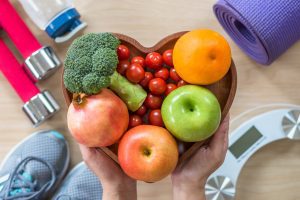Addiction is a condition that affects a person’s mental and emotional state and physical well-being. Recovery from addiction involves restoring balance to the body and mind, and Nutrition In Addiction Recovery plays a critical role in this process. Good nutrition can help speed up recovery, improve overall health, and prevent relapse.
What is on this page
How Addiction Can Impact our Mental and Physical Health
Addiction can have a devastating impact on both mental and physical health. It can cause physical harm to the body through substance abuse and lead to chronic health conditions, such as liver disease and cardiovascular problems. At the same time, addiction can also profoundly impact mental health, leading to feelings of hopelessness, anxiety, and depression.
The cycle of addiction can be all-consuming, taking over a person’s life and leaving little room for anything else. It can cause strained relationships, loss of employment, and a decline in overall quality of life. The physical and mental toll of addiction can be overwhelming, making it difficult for those struggling with addiction to see a way out. However, with proper support and treatment, it is possible to overcome addiction and reclaim one’s health and happiness.
Understanding Addiction and its Effects on Nutrition
Addiction affects the body in many ways, including impairing the functioning of the digestive system and altering nutrient levels. Substance abuse also frequently leads to poor dietary habits, including skipping meals, overeating junk food, and consuming high levels of sugar and unhealthy fats. This can lead to malnutrition, which can have severe consequences for recovery.
Nutritional Needs in Addiction Recovery
A well-balanced diet rich in macro and micronutrients is essential for those in addiction recovery. It is crucial to replenish the body with the vitamins, minerals, and nutrients it needs to repair the damage caused by substance abuse. Hydration and electrolyte balance are also critical, as substance abuse can disrupt fluid levels in the body.

The Benefits of Good Nutrition in Addiction Recovery
Good nutrition has many physical and mental benefits in addiction recovery, including improved energy levels, sleep, and a stronger immune system. Eating a balanced diet also helps to reduce cravings and improves mood and mental clarity, which can be critical for preventing relapse. Nutrition and how it affects our mental health
Nutrition plays a crucial role in our mental health, as food can directly impact brain function and mood. A diet lacking essential nutrients, such as vitamins and minerals, can lead to deficiencies resulting in symptoms such as depression, anxiety, and fatigue. On the other hand, consuming a balanced diet can improve overall mental health and well-being by giving the brain the nutrients it needs in order to function optimally. Additionally, consuming foods high in sugar and unhealthy fats can increase inflammation in the body, which has been linked to mood disorders and mental health conditions. It is important to prioritise good nutrition for optimal mental health.
Nutrition and How it Affects our Physical Health
Nutrition plays a crucial role in our physical health, as food provides the body with the essential nutrients it needs to function properly. A balanced diet can support the body in maintaining good health and preventing chronic diseases. On the other hand, consuming a diet high in sugar, unhealthy fats, and processed foods can lead to weight gain, increased risk of chronic diseases such as heart disease and diabetes, and a weakened immune system. Proper hydration is also important for overall physical health, as it helps to regulate body temperature, lubricate joints, and flush out waste products. In summary, good nutrition is essential for optimal physical health, and it is important to prioritise a balanced diet and proper hydration to support the body functioning at its best.

Meal Planning and Preparation
Eating healthy, balanced meals can be a challenge in recovery, but it is important to prioritise good nutrition to support recovery. Healthy meal options include lean proteins, whole grains, fruits and vegetables, and healthy fats. It can also be helpful to prepare meals in advance and keep healthy snacks on hand to avoid temptation.
Overcoming Nutritional Challenges in Addiction Recovery
Cravings, limited access to healthy food, and stress-related eating are common challenges in addiction recovery. To overcome these obstacles, having a support system, such as a nutritionist or recovery coach, can be very helpful. Mindful eating and stress-management techniques can help prevent overeating or unhealthy food choices.
Addiction Recovery and Therapy
What is Integrative Therapy?
Nutrition plays a critical role in addiction recovery, as it helps to repair damage caused by substance abuse and supports physical and mental well-being. A well-balanced diet is essential for those in recovery, and meal planning and preparation can help overcome common challenges. It is important to prioritise good nutrition and seek support from a nutritionist or recovery coach to ensure a successful recovery.


